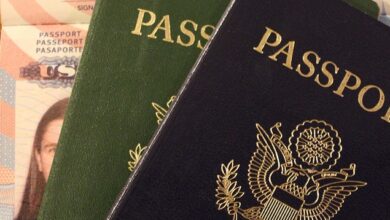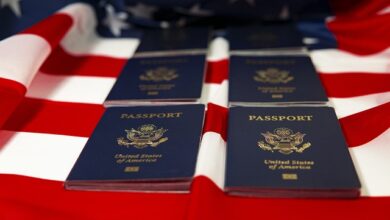How Brexit Affects UK Citizens in the Netherlands

Introduction
The United Kingdom’s decision to leave the European Union (Brexit) has had far-reaching implications for both the UK and its EU neighbors. For UK citizens living in the Netherlands, Brexit has introduced significant changes in areas such as residency rights, healthcare, employment, and travel. This article explores how Brexit impacts UK nationals residing in the Netherlands and provides guidance on navigating these changes.
Residency Rights
One of the most critical concerns for UK citizens in the Netherlands is their right to remain in the country after Brexit. To secure their legal status, UK nationals were required to apply for a Residence Permit for EU Citizens (EU-vergunning) under the Dutch government’s EU Withdrawal Agreement Implementation Act .
Key Points:
- Application Deadline : The deadline for applying was August 31, 2021 , but late applications may still be accepted in certain circumstances.
- Types of Permits :
- Temporary Residence Permit : Granted initially for five years.
- Permanent Residence Permit : Available after living legally in the Netherlands for five consecutive years.
- Documents Required : Proof of identity, proof of address, and evidence of lawful residence before January 1, 2021.
Once granted, the permit ensures that UK citizens can continue living, working, and studying in the Netherlands without interruption.
Employment and Work Rights
Before Brexit, UK citizens could work freely in the Netherlands as part of the EU’s freedom of movement rules. Post-Brexit, while existing residents retain their rights, new arrivals from the UK are subject to stricter immigration policies.
Key Changes:
- Work Permits : New UK workers entering the Netherlands must now apply for a work permit unless they qualify for exemptions (e.g., highly skilled migrants or intra-company transfers).
- Self-Employment : Self-employed UK citizens already residing in the Netherlands can continue operating under the same conditions as pre-Brexit. However, new self-employed individuals may face additional requirements.
For those already employed, there are no immediate changes, but employers should ensure compliance with updated regulations.
Healthcare and Insurance
Healthcare arrangements have also been affected by Brexit. UK citizens in the Netherlands need to understand the new rules regarding health coverage.
Key Considerations:
- EHIC Card : The European Health Insurance Card (EHIC), which previously provided access to state-provided healthcare across the EU, is no longer valid for UK nationals. Instead, UK citizens must rely on private health insurance or enroll in the Dutch healthcare system.
- Zorgverzekeringswet (Zvw) : All residents in the Netherlands, including UK citizens, are required to have basic health insurance under the Dutch Health Insurance Act. Failure to comply may result in fines.
- Pensioners : UK pensioners living in the Netherlands continue to receive NHS treatment if they hold a S1 form , issued by the UK government.
It is crucial for UK citizens to review their health insurance options and ensure continuous coverage.
Travel Between the UK and the Netherlands
Travel between the UK and the Netherlands has become more complicated post-Brexit.
Key Impacts:
- Visa Requirements : UK citizens can visit the Netherlands visa-free for up to 90 days within a 180-day period for tourism or business purposes. Longer stays require a visa or residence permit.
- Passport Validity : Passports must be valid for at least six months when traveling to the Schengen Area, including the Netherlands.
- Customs Regulations : There are now restrictions on bringing goods into the EU from the UK. Personal belongings and gifts over a certain value may incur customs duties.
UK citizens should always check the latest travel advice before planning trips.
Education and Student Rights
Brexit has altered the landscape for UK students studying in the Netherlands.
Key Changes:
- Tuition Fees : UK students starting courses in the Netherlands after January 1, 2021, are no longer entitled to pay EU-level tuition fees. They are now classified as international students, which often means higher costs.
- Erasmus+ Program : The UK has left the Erasmus+ program, though some institutions may still participate through partnerships. UK students may no longer benefit from Erasmus scholarships or exchanges.
- Student Visas : While not currently required, UK students must meet residency and registration requirements like other non-EU students.
Existing students who began their studies before Brexit generally retain their previous rights.
Pensions and Social Security
Social security agreements between the UK and the Netherlands help protect the rights of retirees and workers affected by Brexit.
Key Points:
- State Pensions : UK state pensions continue to be paid to recipients in the Netherlands, and annual cost-of-living increases apply.
- Contribution Records : Contributions made to both UK and Dutch social security systems count toward entitlements such as pensions and unemployment benefits.
- Coordination Agreements : Bilateral agreements ensure fair treatment for individuals with mixed contribution histories.
Those nearing retirement age should verify their eligibility and update their records accordingly.
Family Reunification
Family members of UK citizens in the Netherlands may also be impacted by Brexit.
Key Considerations:
- EU Family Member Residence Permit : Non-EU family members of UK citizens who moved to the Netherlands before January 1, 2021, can apply for this permit under the withdrawal agreement.
- New Arrivals : Family members arriving after Brexit may need to follow standard immigration procedures for non-EU nationals.
Understanding these rules is vital for maintaining family unity.



